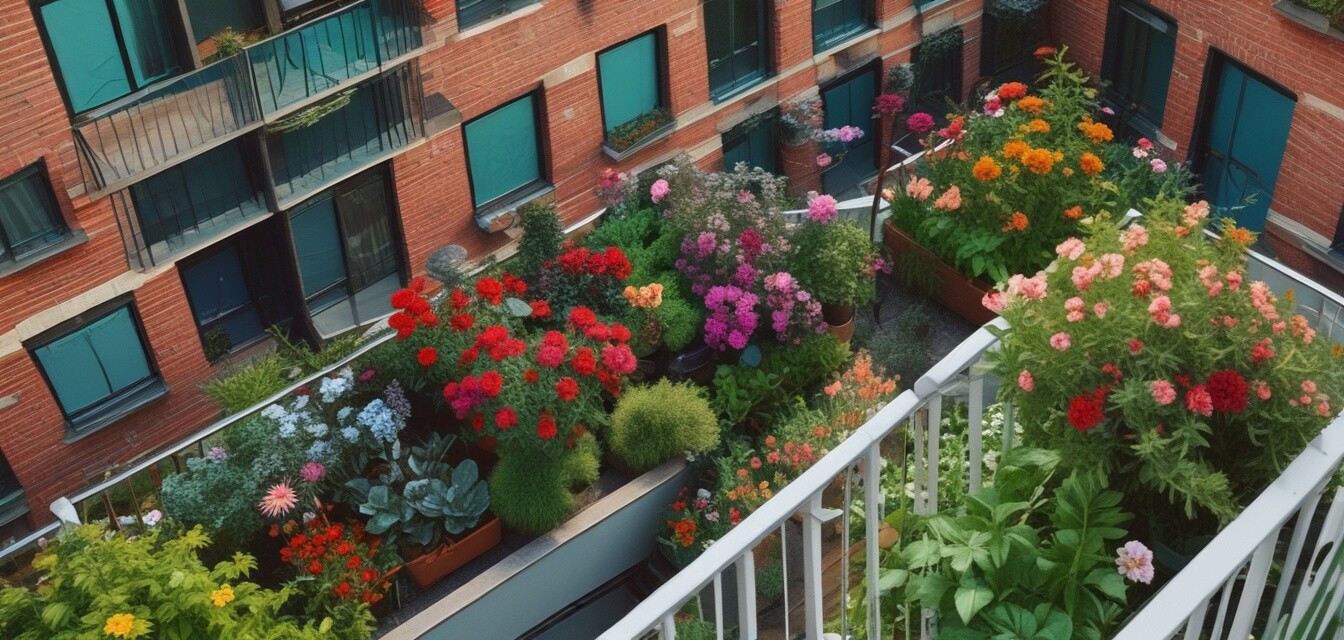
The impact of urban gardening on mental health
Key Takeaways
- Urban gardening significantly improves mental well-being among city dwellers.
- Interaction with plants can reduce stress and enhance mood.
- Gardening fosters community building and social connections.
- It promotes a sense of accomplishment and responsibility.
- Urban gardening encourages a sustainable lifestyle and environmental awareness.
In today's fast-paced urban environment, finding peace and serenity can be a challenge. However, urban gardening has emerged as a powerful tool to combat stress and enhance mental wellness. This article explores the profound impact of urban gardening on mental health and how it benefits city dwellers looking to reconnect with nature.
Understanding urban gardening
Urban gardening refers to the practice of cultivating, processing, and distributing food in and around cities. This form of gardening is not limited to just food production but includes beautifying spaces, engaging communities, and creating plausible habitats for local wildlife.
Types of urban gardening
- Container gardening: Utilizing pots and containers for easy management in limited spaces.
- Vertical gardening: Employing vertical space with trellises or wall-mounted systems for growing plants.
- Community gardening: Shared plots where neighbors work together to cultivate plants.
- Rooftop gardens: Utilizing flat roofs to create green spaces in densely populated areas.
The psychological benefits of urban gardening
Research consistently shows the correlation between gardening and improved mental health. Here, we delve into some of the key psychological benefits of engaging with plants and gardening in urban settings.
Reduction of stress levels
Gardening serves as a therapeutic outlet, offering an escape from the bustling city life. Engaging with plants has a calming effect and can significantly lower cortisol levels, the hormone associated with stress.
Enhancing mood
Interacting with greenery can lead to the release of endorphins, often referred to as the body's feel-good hormones. Spending time in nature, even in small doses, can lift spirits and create a positive mood shift.
Creating a sense of community
Urban gardening encourages collaboration among individuals. Community gardens instill a sense of belonging and help forge friendships, providing social support that is essential for mental health.
Fostering responsibility and accomplishment
Caring for plants requires commitment. Successfully nurturing them fosters a sense of responsibility and pride, which can enhance self-esteem and improve overall mental well-being.
Gardening in small spaces
Even with limited space, urban dwellers can effectively cultivate their green oasis. Urban gardening can fit into balconies, windowsills, or small backyards. Here are some ideas for maximizing your gardening experience in small areas:
| Gardening Technique | Description |
|---|---|
| Container gardens | Use varying sizes of pots to fit different plant types, allowing flexibility in arrangements. |
| Vertical gardens | Install wall planters or utilize trellises to save ground space while maximizing plant growth. |
| Hanging gardens | Grab some hanging baskets to suspend plants from ceiling hooks or balcony railings. |
| Rooftop gardening | Transform unused roof space into productive gardens, providing both fresh produce and a green retreat. |
Emerging trends in urban gardening
With the rise of environmental awareness and sustainability, urban gardening continues to evolve. Here are some trends to watch:
- Hydroponics: Soil-free gardening methods are gaining popularity, allowing for efficient space utilization while conserving water.
- Permaculture: Creating self-sustaining habitats within urban settings to promote biodiversity and ecological health.
- Biodynamic practices: Using organic farming principles supported by lunar cycles to enhance plant health.
- Edible landscapes: Combining aesthetics with functionality by using fruit-bearing plants in decorative gardens.
Conclusion
Urban gardening is more than a trend; it's a vital component of urban living that enhances mental health for city dwellers. By allowing people to reconnect with nature, gardening fosters psychological well-being and builds valuable community connections. Investing time in urban gardening offers serenity amidst city chaos, leading to a healthier mind and happier life.
Tips for beginners in urban gardening
- Start small by choosing low-maintenance plants that suit your space.
- Utilize online resources and local workshops to learn about gardening techniques.
- Experiment with different types of pots and soil to find what works best for your plants.
- Engage with your local gardening community for support and inspiration.
- Be patient and enjoy the process; every garden takes time to flourish!
Pros
- Promotes mental well-being and stress relief.
- Fosters community and social interaction.
- Encourages sustainable practices and environmental responsibility.
- Provides a sense of achievement and satisfaction.
Cons
- May require time and commitment for maintenance.
- Limited growing options in small spaces.
- Potential for pests which can be challenging to manage.
- Accessibility issues for individuals with physical constraints.